Atlanta’s health care system is strained by major hospital’s closing, doctors and patients say
ATLANTA — At Emory University Hospital Midtown in downtown Atlanta, two mobile pods have been stationed outside the emergency room. Doctors have been called in during extra busy “surge” times, and an administrator described patients on stretchers lining the halls.
“Overcrowded is probably par for the course,” said Dr. Nataisia Terry, the medical director of the emergency department, adding that the volume of ER patients grew by 20% over the last budget year.
Nearby, Grady Memorial Hospital is so packed that ambulance traffic is sometimes routed to facilities miles away. Both Emory and Grady are often listed as “severely” or “dangerously” overcrowded on a statewide hub used to monitor capacity.
These are the aftershocks from the closing in 2022 of Atlanta Medical Center in a city that already struggled to meet demand for services and provide accessible care. From 2022 to 2023, the metro area population swelled by 66,730 residents, adding to the challenge. While comprehensive data isn’t yet available, interviews with 16 doctors, patients, residents, advocates, local officials and experts reveal growing strains on Atlanta’s health care system, which many fear would be overwhelmed by a disaster.
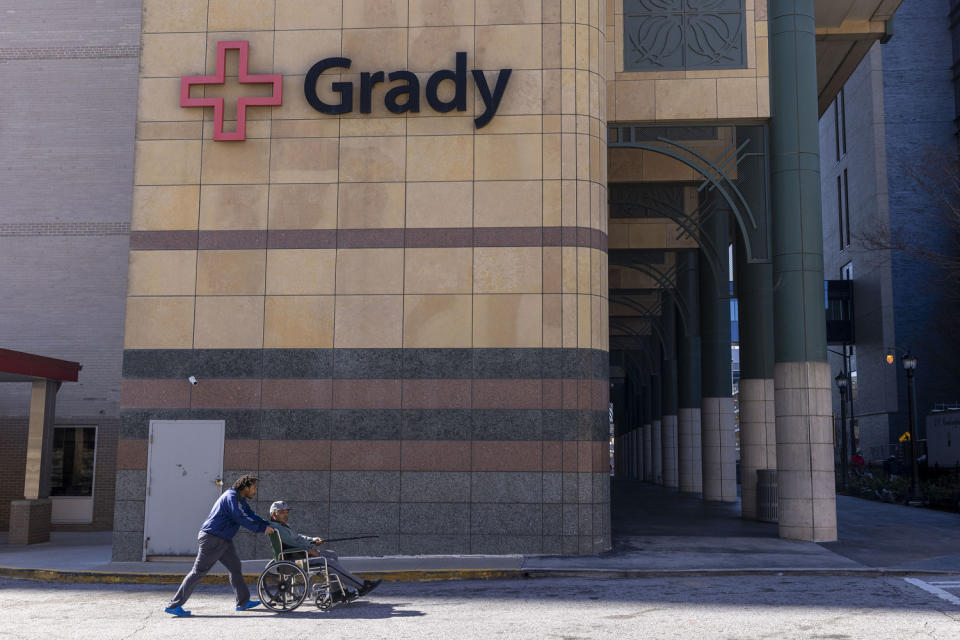
Grady Memorial, Atlanta’s only remaining Level 1 trauma center for adults and one of the largest hospitals in the country, has been hit particularly hard.
Dr. Anwar Osborne, who has practiced at Grady since 2008, described the scramble to treat patients, some of whom are airlifted from rural areas. “Before, our 10-person squad could move between a couple of rooms. Now it has to move between all of those patients and all at once. That level of intensity is kind of hard to capture unless you’re living through it.”
Though Grady has shouldered the increase thus far, he says it is much more difficult now that Atlanta Medical Center, the city’s only other trauma center for adults, is gone. “These problems need to be fixed,” he said. “We are less safe as a community without a robust public health infrastructure.”
Doctor predicts 'terrible effects'
Atlanta Medical Center, once known as Georgia Baptist Hospital, was acquired by the Marietta-based nonprofit Wellstar Health System in 2016. The 460-bed facility sat in a tract of Atlanta’s historic Old Fourth Ward neighborhood, where roughly 31% of residents live in poverty and 42% are Black. Citing financial troubles, Wellstar closed Atlanta Medical Center on Nov. 1, 2022, a few months after it closed a smaller hospital, Atlanta Medical Center South, on the outskirts of the city. Wellstar also shuttered or relocated at least 15 facilities affiliated with Atlanta Medical Center, further narrowing access to primary care and specialists.
On one January afternoon — the day before one of those facilities, Wellstar East Point Health Center, was closed — a young woman who said she lived in the neighborhood and had just been in a minor car accident declined to be interviewed as she left the clinic. If her accident had happened a day later, she’d have been forced to travel much farther.
In a city known for its stark income inequality, physicians said the closings have had significant ripple effects.
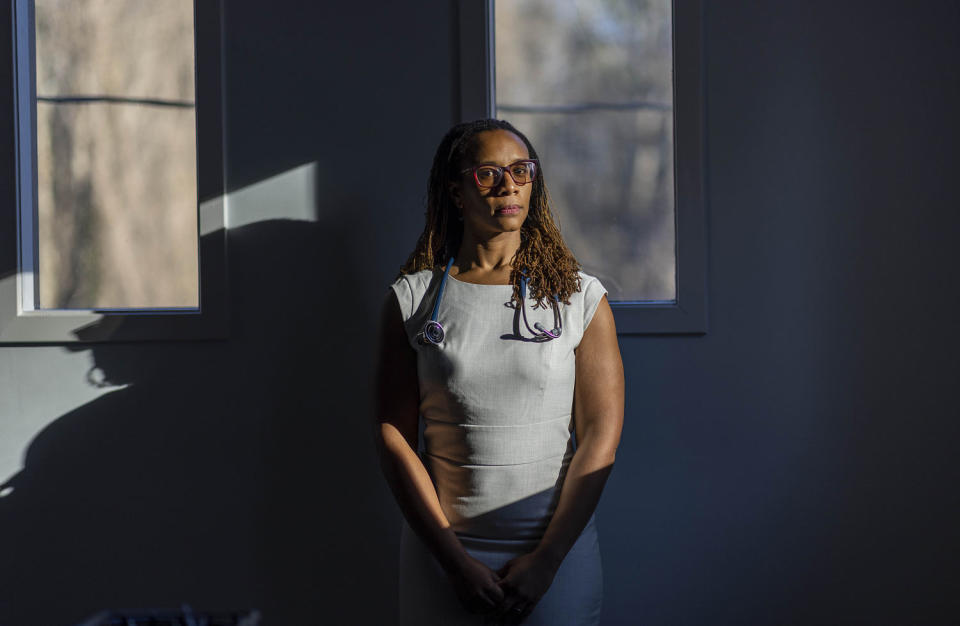
Dr. Michelle Cooke, who formerly worked at a Wellstar family medicine office and has since opened a private practice that charges a membership fee rather than accepting insurance, said many of her new patients haven’t seen physicians for more than a year as they struggled to find appointments.
“Unfortunately, I think we’re going to see a huge rise in morbidity and mortality, just because a year of people not getting their blood pressure checked, a year of not getting appropriate cancer screenings, like mammograms, pap smears — so much of that builds up that we’re going to see terrible effects in the next five to 10 years,” she said.
When a hospital shuts down, the increased strain on nearby providers can cost lives, a 2019 Harvard study found, with the rate of patient deaths that occur within 30 days of discharge rising by 3.8% over a three-year period.
Georgia’s rural hospitals, in particular, have already taken a battering. From 2008 to 2020, nine closed. The state has so far rejected a full Medicaid expansion, which would offer government insurance to hundreds of thousands of low-income adults, and a scaled-down alternative had enrolled only 2,344 residents as of Dec. 15. That has left many uninsured residents with limited access to routine preventive care. A persistent OB/GYN shortage means many pregnant residents in rural areas have to drive farther to give birth, even as the state suffers from one of the highest maternal mortality rates in the country.
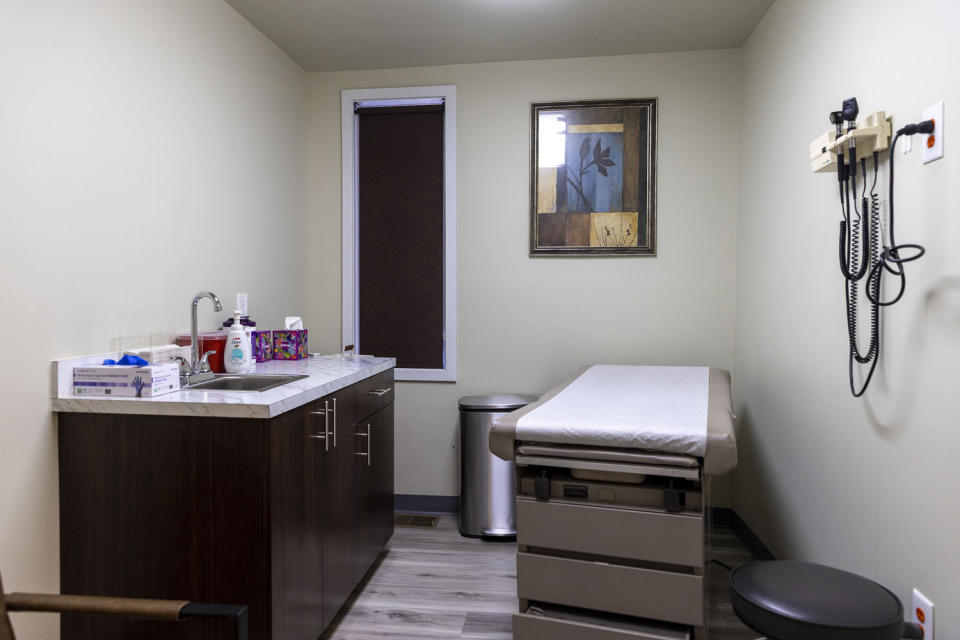
Local residents, officials and civil rights advocates have criticized Wellstar for shutting down two hospitals that serve a large number of Black patients.
Wellstar spokesperson Matthew O’Connor said in an email that the nonprofit organization had tried to avoid closing Atlanta Medical Center. “Wellstar undertook significant efforts to improve AMC and avoid the closure despite significant financial and operational challenges and a lack of public assistance,” he wrote.
O’Connor also disputed accusations of removing resources from communities of color, noting that several of its facilities serve as “safety net hospitals” for low-income areas. “We believe everyone should have equitable access to healthcare, regardless of their ability to pay,” he wrote.
Trauma cases on the rise
When Crystal Martin accompanied a friend to Grady after a scooter accident in January, she said, staff members had resorted to taping numbers to the wall to keep track of the patients crammed in the hallway. Bags of vomit and used tissues littered the floors, she said, and the nearby restrooms lacked paper towels and toilet paper for hours.
“They are truly just understaffed, overworked, trying their best,” she said of Grady’s staff.
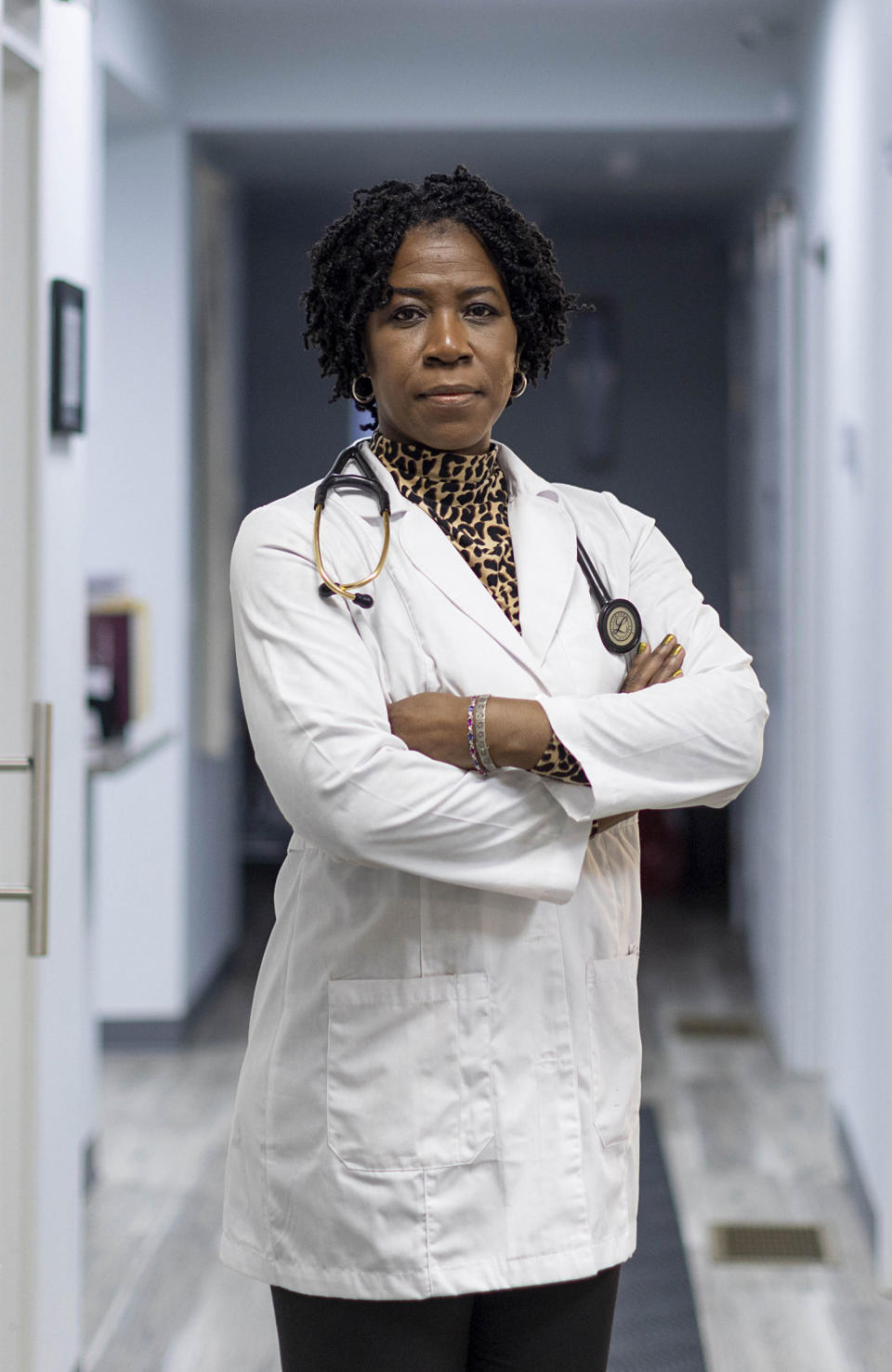
Dr. Zandraetta Tims-Cook, an infectious disease physician who works in private practice and part-time at Grady Memorial, said she worries about sending her patients to the hospital if they need timely care.
“Every person is working as if you’re doing the workload of three people,” she said. “Your day starts at 6 a.m., and you’re lucky if you get to see daylight.”
Dr. Robert Jansen, Grady Health System’s chief medical officer, acknowledged trauma cases have increased but didn’t provide specific numbers. Grady’s CEO, John Haupert, said in January that the hospital’s trauma cases increased by 35% in the year after Atlanta Medical Center’s closure, according to The Atlanta Journal-Constitution.
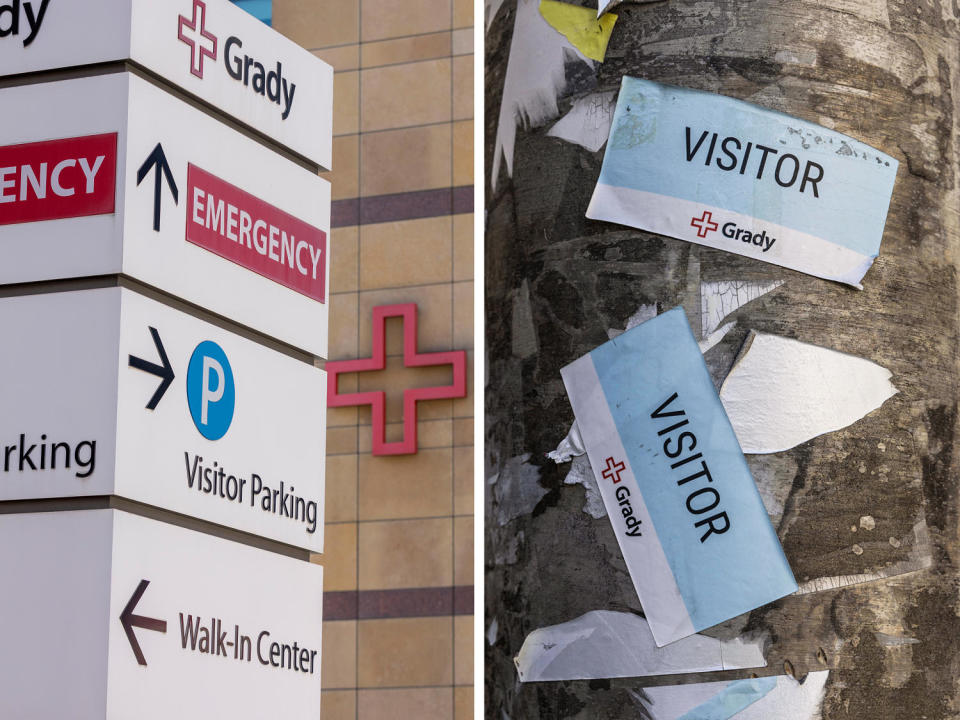
“Grady appropriately projected the uptick in trauma volume and increased staffing accordingly. Additional critical care beds were opened for trauma patients and have successfully met the needs of that increased trauma volume,” Jansen wrote in a statement, adding that the number of patients awaiting beds hasn’t risen since Atlanta Medical Center closed.
“There has never been an occasion when a physician was unable to admit a patient who needed care,” Jansen wrote. The hospital has hired more staff members, and it added 52 critical care beds at the end of 2023 and 60 acute care beds in January, he said. It plans to open 54 more beds by the end of April.
Displaced care
Still, the loss of Atlanta Medical Center has made it harder for many in the area to find the care they need, said Kierra Stanford, an organizer with the New Georgia Project, a nonpartisan civic organization, who considers the closings a form of “health care redlining.”
“What we see is another way people are being pushed out of their community due to lack of accessible services and affordable services,” she said. “It really is hard to see.”
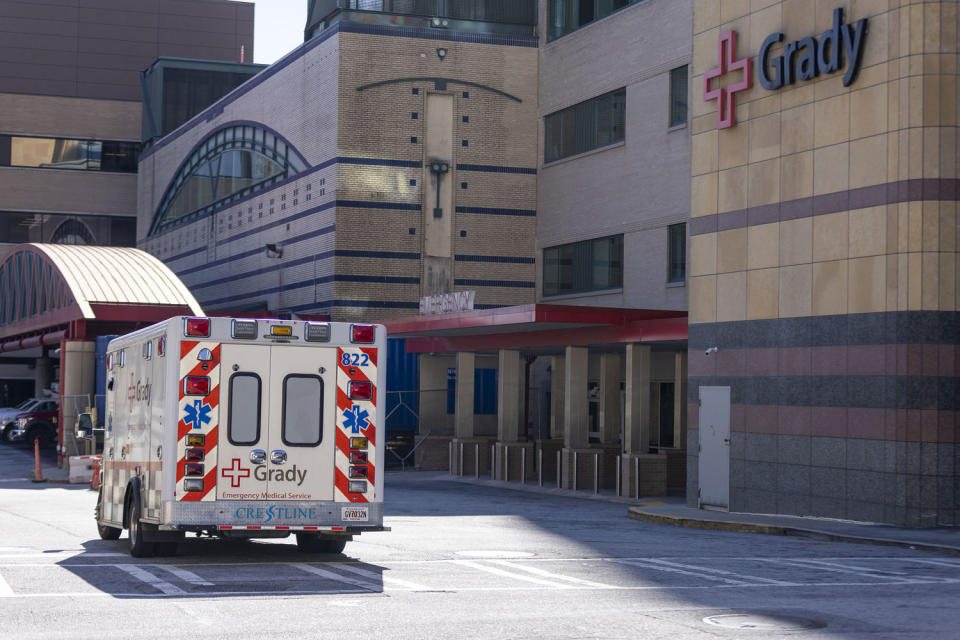
Ashley Grady, a hairstylist who lives in East Point, the predominantly Black community where Wellstar closed Atlanta Medical South in spring 2022, has experienced that shift.
In January, Grady sprained her left foot, aggravating an old fracture, and drove just over 8 miles to Grady Memorial seeking treatment.
After another patient in the emergency room told her that she had been waiting for 28 hours, Grady said, she drove 22 miles north to Wellstar Kennestone Regional Medical Center, in the richer, whiter exurb of Marietta. She said she was seen within a few hours.
“If I’m dying and I just had a car accident, of course I’d want Grady to help,” Grady said.
“Outside of that, I just wouldn’t.”
Danielle Hackett, a spokesperson for Grady Memorial, said wait times haven’t increased since Atlanta Medical Center closed.
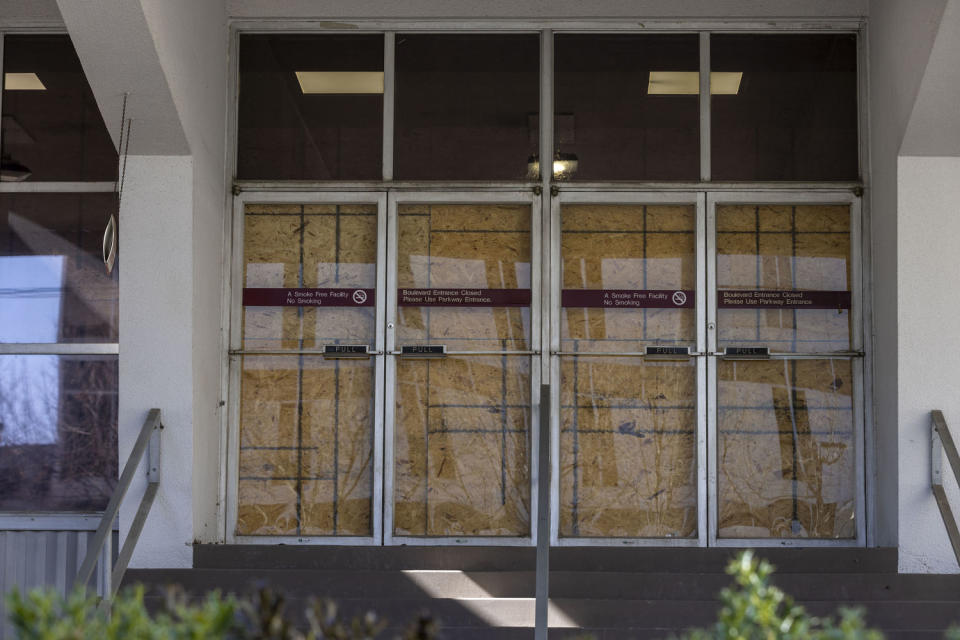
For now, it’s unclear what will become of the 25 acres of downtown real estate occupied by the darkened hull of the former hospital. The Atlanta City Council has voted three times to pause development at the site to preserve the area for projects that serve the community.
“Hospitals can only be built with a certificate of need, but it takes nothing for them to pull out of a community,” said City Council member Marci Collier Overstreet, referring to Georgia’s approval process for certain health facilities. Ideally, she said, they would “need to have a certificate of departure, as well.”
Bracey Harris reported from Jackson, Miss., and J.J. McCorvey from Atlanta.
This article was originally published on NBCNews.com

